Danny Glover: The U.S. Redefines the Term ‘Dictator’ as It Sees Fit
The actor and activist dissects the Trump administration's meddling in Venezuela and our long history of interventionism in Latin America.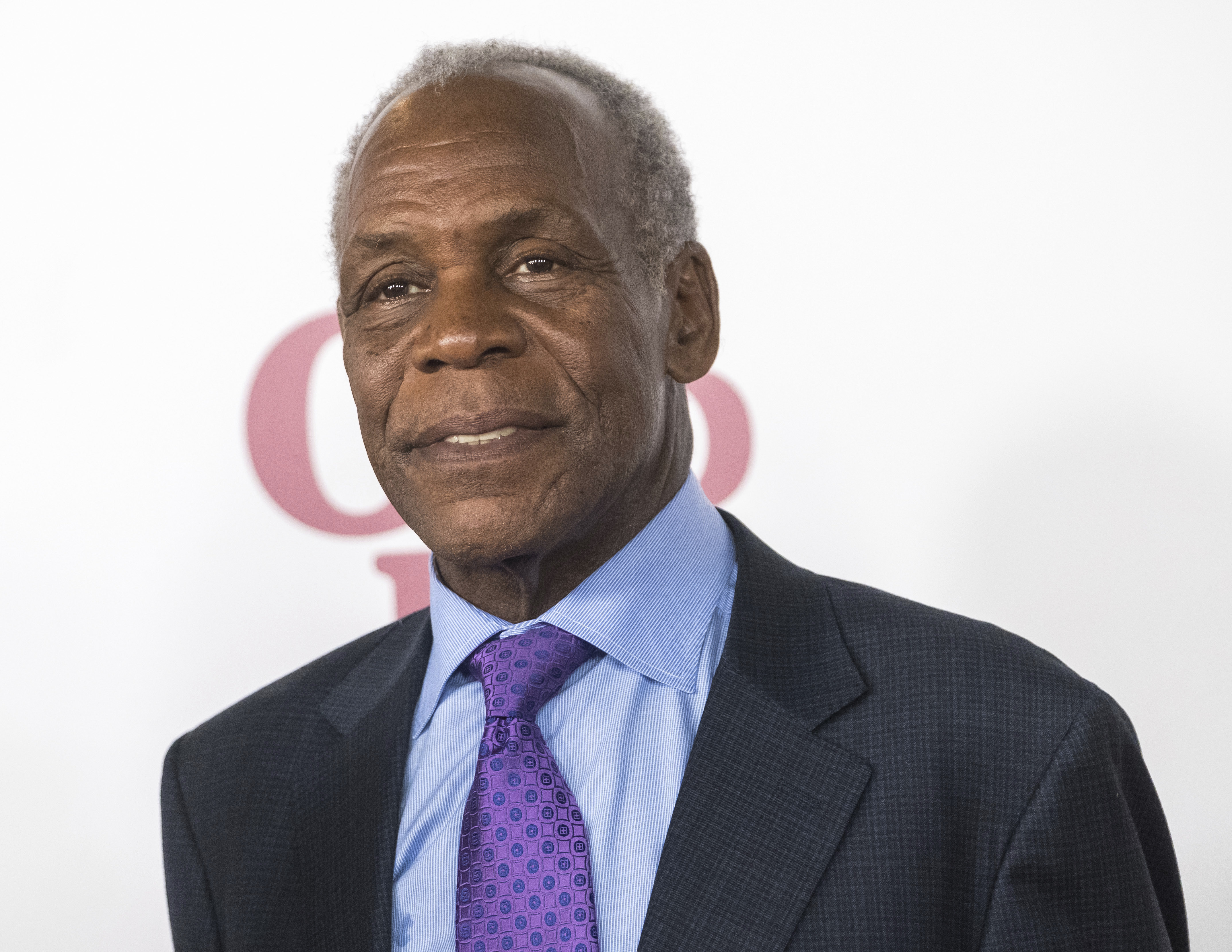 Danny Glover attends the premiere of "The Old Man and the Gun" at the Paris Theater in New York last September. (Charles Sykes / AP)
Danny Glover attends the premiere of "The Old Man and the Gun" at the Paris Theater in New York last September. (Charles Sykes / AP)
What follows is a conversation between actor and activist Danny Glover and Sharmini Peries of the Real News Network. Read a transcript of their conversation below or watch the video at the bottom of the post.
SHARMINI PERIES: It’s The Real News Network. I’m Sharmini Peries, coming to you from Baltimore.
In the State of the Union speech on Tuesday, President Trump reiterated his recognition of the opposition leader Juan Guaido in Venezuela, who is a self-declared president, he claims, of Venezuela. He also deemed that Venezuela–now, this is President Trump–he also deemed that Venezuela is a socialist country saying, that its economic crisis proves that socialism does not work. Meanwhile, more countries recognize self-proclaimed Juan Guiado as the president of Venezuela and have pledged humanitarian aid to him for assisting Venezuelans. The U.S. has promised 20 million dollars, Colombia 40 million dollars, and Canada 53 million dollars. Venezuela’s President Maduro is rejecting the aid, saying “We do not need charity, we want everyone to release Venezuelan governments’ billions of dollars that are held in assets all over the world released.” And these funds have been used as sanctions against Venezuela so it cannot assist its own people.
Joining me now here in the studio to discuss the latest developments is the renowned actor and activist, Danny Glover.
DANNY GLOVER: Thank you very much, Sharmini. Thank you.
SHARMINI PERIES: Danny, you have a very special history with Venezuela, and with the Chavez government previously. You were invited–you were a regular visitor with Chavez. You were a friend of Chavez. Since Chavez has died, you have also, on the invitation of the Venezuelan government, have visited Venezuela many times. And I say all of this, A, for transparency, and B, for over a decade and a half, you have built up your expertise, your knowledge, your insight, understanding of the crises that Venezuela has been experiencing during this long period of Chavismo. And I think it’s important for us, and for people on the left, to have an honest conversation about the way in which we defend Venezuela. And I say we because I myself, in the interest of transparency, worked with President Chavez for four and a half years at Miraflores, and am someone who very much believed in the revolution and what was possible in terms of another world that Venezuela was trying to forge at the time.
And so, with that in mind, and this history and the knowledge and the advice you yourself has given to the Venezuelan government, particularly in light of Afro-Venezuelans holding up their human rights and how to advance the rightful situation, rightful interests of citizens of Afro descendants in Venezuela. You have worked on all of these issues. Now, I want to ask you–and to that history I want to add that you’re also a human rights advocate for not only people here in the United States but all over the world. You’ve traveled throughout Latin America, you have defended people. So with that history and being an American, how do you feel and how do you actually respond to your government and many European countries, and now many Latin American countries, recognizing self-proclaimed Juan Guiado as the president of Venezuela?
DANNY GLOVER: Well, with all due respect to any analysis of Venezuela, we have to go back a little ways. The planning for the Conference on Racism and Xenophobia took place in Durban, South Africa in 2001. It had been years of planning, it had been movements relative to Afro-Descendants, changes that have occurred after the end of the military dictatorships in the respective countries in Latin America. So we go back. This renewed, this explosion of energy and democracy, democratic principles and all those things, adjusting to the past wrongs that have been done through the military dictatorships and historically throughout Latin America.
I mean, when we look at that, then on top of that we have the World Social Forum, The World Social Forum in Porto Alegre in Brazil in 2003, my first time to go to Brazil and one of the first times in the beginning of a long term relationship with Latin America, where we saw so many things happening. We saw things were happening in Bolivia, Evo Morales came out of the struggle against privatizing the water in Bolivia, and you can go on and on and on. You had Lula da Silva, who had run many times for president and won. And all these new changes that were happening, it seemed to be a new nexus around real transformative changes, relationships, nation to nation relationships. CARICOM, Petro Caribe, all these different, new, the idea of the bank of the South.
All these ideas were set in motion at this particular time. It’s an explosion of people’s energy, a repudiation of the neoliberal paradigm that they had suffered through, and the exploitation of the natural resources, the exploitation of indigenous people, et cetera. All of it was slave-owned here. And at that particular point in time–and I’m trying to assess all of this, because we talk about Venezuela, but we see what’s happening in Argentina, Ecuador, Chile, which had one coup in 1973, now it’s moved further to the right, et cetera.
SHARMINI PERIES: Brazil…
DANNY GLOVER: Brazil, which has moved further to the right. And the most dangerous, the elements who are most endangered are the most progressive, most enlightened parts of the Brazilian transformation, of the landless movement, MST. And that movement has placed more than 400,000 families on vacant lands and has transformed the relationship that not only citizens have with the nation-state, but citizens have with themselves as well. So this whole thing, this whole thing that we’re watching, we watched and we saw this, we witnessed, we were drawn to it. The left may have criticized parts of it, it didn’t go far enough. What was explained as socialism may have been considered to be social-democratic, et cetera. But this movement was in process and everything else.
At the same time, all these conspiratorial forces were there to try to undermine it, to limit its effectiveness and subvert it. And those things were happening. We see this in Venezuela especially, because the ideas came out of Venezuela because Venezuela is not a country of 200 million people, so it’s difficult to get a consensus among 200 million people. It’s a small country. So the sample size of building two million homes, of training doctors, of having doctors service communities, the barrios and other communities that had been disenfranchised, all was doable on the way. To eradicate literacy, all this was doable in a sense. So all these things which we would think of in the world were necessary demands for the human existence and their progression in their lives and everything, those things were happening right here.
So what we see now, in a brutal attempt, whether it finds itself in the illegal imprisonment of Lula da Silva or the illegal coup that occurred, the legislative coup that happened with Dilma Rousseff, all these things are happening right now. And as we get more and more information about what’s just happened, as you share the information about the “humanitarian aid” that’s provided. Now what you’ve done is you’ve taken the billions of dollars that rightfully belong to the Venezuelan people, and what you’ve done is you’ve taken those millions of dollars, you’re putting sanctions on it, they can’t use their own money, their own resources. And then you come as this knight in shining armor to save them and everything with a few million dollars of “humanitarian aid.” We don’t know where that money goes to you. All these.
But this is a very, very concise plan, a plan that was laid out with certain contingencies and certain possibilities and always adjusting to the dynamics that were happening internally in the country here. And I think that’s the point. We could argue about Maduro, what he did, what he didn’t do, we can go onto that. But for one thing, we have to take into the fact the sanctions, the initial sanctions placed by the Obama administration, which interestingly enough, in a sense, included simply just those people who were in governance and everything, those people who were part of the governmental apparatus. But at the same time, now he’s moved to attack the people in direct, specific ways. The hyperinflation, we could make and arguments about what the Venezuelans could have done in terms of dealing with inflation, and essentially what has turned to hyperinflation, which in some sense is the death nail of any country with hyperinflation.
You can’t get anything done. The black market, which dictates a great deal of how currency flow is and everything else. So whatever we talk about, this becomes disproportionate. The danger that we have now and the danger that we see is a full-scale conflict which will decimate not simply the gains that were made by this action called the Bolivarian Revolution over the last over the last 20 years. This is the attempt to kill that, is what is on the table and had always been on the table. Power always, in this sense, this corruptive, dangerous power that this country has always attempted to diminish people’s expectations. I don’t care if it’s the Mayan Indians Guatemala, I don’t care if it’s those who fought for independence, the Sandinistas forming independence and won their war. Whatever it is, it’s to diminish their expectations.
So how do we talk about it? Yes, it’s disappointing. We’ve been on this, the Center for Economic Policy and Research, other organizations have been on this 24/7 for some time, trying to find a way in which we can push congressional leaders, push certain people to the point of first of all questioning the historic relationship that the U.S. has had with Latin America, and trying to find a new relationship with Latin America. And as I listen to this–and we talk about conspiracies and everything else, but there is a conspiracy. Whatever the conspiracy is, there’s a conspiracy undermine the will of the people, and that has happened, the will of the majority of the people. They delegitimized the elections when the Carter Institute said that “these are the best elections in the world.” I mean, we’ve studied these elections. There’s been, books, reports, they’ve reported before Congress or whatever that “this the best election of all.” So any way to undermine this, because there’s a deeper pathology here. And it may be all we do might not be enough.
SHARMINI PERIES: Let’s talk about that pathology, the deeper pathology you’re talking about. It is absolutely clear that countries that have supported and recognized Juan Guiado as the president of Venezuela has a certain interest in Venezuela. Now, I can say to you myself that Canada has a particular interest in Venezuela, and that’s a financial one, that’s a trade one. They actually own a number of the leases to the gold mines. It’s not only oil. Canada has a lot of oil, Canada is not interested in the oil, but they have interests and leases in gold mines at nickel mines, Bauxite, there are diamond-rich mines. And all of this is what’s driving say Canadian policy and interests of the Lima group and why now Canada is doing the bidding for Donald Trump and for John Bolton and others. But talk a little bit about the interests, the capital interests driving foreign policy here.
DANNY GLOVER: Well, for a long time, we think about the nation-state and everything, but the nation-state in so many in so many ways has dissolved into relationships that purely depend upon multinational corporations. Corporations, in some sense– David Korten wrote a book, Corporations Rule the World. They dictate policy, they can create a currency crisis that destabilizes the economy anywhere they want to do this. That’s the issue. So the nation-state, now, in some sense is represented by these corporate interests which have the interests in raw materials. And certainly, we can look at the world. Of the main issues is that perhaps Africa has never had the kind of clear because of the role colonialism played. And because there was no major figure like Simon Bolivar, who came in and expressed a certain identity in terms of Latin America and peoples in South America as well, because it wasn’t there that it has the same problem.
Look at the Congo. We sit around and it’s as if the Congo doesn’t exist, as if the Congo doesn’t have three billion people who have been killed in the Congo. And it’s been kind of acceptable or acknowledgment that has occurred in the Congo, but it’s Africa, and Africa, with all of its so-called disfunctionalism and everything else. So the same thing is happening. But there’s a strong currency within the way that Latin Americans see themselves. You find it in every aspect of the cultural life, the poetry, the great writers who talked about this certain kind of identity and sense of their own entitlement and self. And basically, the Bolivarian Revolution centered on Simon Bolivar, who was in some sense, in some ways, the godfather of this sense of determination and independence that it resonates in.
So the question is, what happens in these internal wars? What will happen if there’s a civil war in Venezuela and what impact would that civil war have on the rest of the region, particularly fragile countries who are struggling with themselves? Small Uruguay, three million people trying to find their answers with answers within their own new identity and relationship with Bolivia. What impact does that have on Bolivia now and Evo Morales? And we see all this. And what impact does that have on Caribbean countries as well?
SHARMINI PERIES: Speaking of Caribbean countries, CARICOM came out in a very strong statement denouncing the self proclamation of Juan Guiado as president and they recognize Maduro as the president of Venezuela, and denounced, at the UN Security Council meeting, anything but the recognition of Maduro. Now, except Haiti, Haiti recognized Juan Guiado, and this was very interesting to me particularly given the history that you’re talking about, which is Simon Bolivar, Haiti, and the alliance with Venezuela. And you are a scholar, you have followed what’s going on in Haiti for a very long time. Why this departure now?
DANNY GLOVER: Well, I mean, Haiti had–as short-lived as it was–1990, 1989 they elected a priest, a charismatic priest who talked about Haiti and his own responsibility to the Haitians, who revitalized the idea of the Artibonite River and Valley should be a rice-growing, should provide, and had been for most of its existence as a nation, self-sufficiently provided rice for the Haitian people, they were able to grow there, they became self-sufficient in rice. Now that we’re importing rice from Iowa and other places because of the new arrangements, the new structural adjustments, or the new arrangements that the neoliberal paradigm, they find themselves depending upon imported rice and everything. We see all these countries. We see Mexico and what has happened in terms of just corn itself. The corn comes from other places in the world, and poor farmers cannot feed themselves, cannot produce corn at a price that is profitable, where they can maintain their life and everything else and keep from starving. So all those things.
One picture of this is the picture of Venezuela with I think the most egalitarian usage of national resources that we’ve seen in a long while. I mean, in that period of time of taking those resources and turning the resources into places where they benefit as people and everything else is a dangerous precedent. What do we draw from this? We can talk about all the liberal ideas that we want and all the ideas of independence and self-sufficiency and everything else. But when a country attempts to become self-sufficient in its own way, and thereby its self-sufficiency allows them to place demands on themselves and place demands on those who attempt to alter and change that, that’s another reality. The game is inconclusive. There are many things that can happen in this whole process. You know. And maybe there could be some sort of arrangement in which we don’t have the eradicating of all the things that have been so dear and have been so accomplished, so many things have been accomplished in this moment. It’s 20 years. It’s a short period of time, 20 years. It’s very discouraging.
SHARMINI PERIES: One last question to you, Danny. Much of the international media, much of the international community, tries to portray Nicolas Maduro as a dictator. If you were to do a search on the Internet in coverage of Venezuela, you will often find the word President Maduro followed by “dictator” or “Dictator Maduro.” Is there any evidence to such a claim as President Nicolas Maduro is a dictator?
DANNY GLOVER: No more than it was President Chavez as a dictator. People elected him, he was elected. We seem to redefine or define dictator in ways that are useful. So you drive it into people’s consciousness. This pathology, if you drive that into people’s consciousness, that a person is a dictator, then in some sense, they accept that in ways, subconsciously, unconsciously, because it’s been drummed into their memory. No matter all the information that refutes that, whether there was free elections, whether there was transparent elections, whatever. The question is that, the question is always going to be what they hear, what they perceive. And I find that people that I respect on the Hill have used that platform in their culture. And like I said, I can only-yeah. But he’s not, no more than Hugo Chavez was aa dictator.
And same thing, they say maybe the fact that they are entitled to certain services, that they as citizens–and active citizens. These were active citizens. These weren’t citizens–they were active citizens in the course of building something, building something they believed in. And like I said, because of the vast amount of resources, because it’s only 25, 26 million people, the stakes were higher in some sense. The possibilities were higher in some sense. And for us who were able to watch that and to watch them redefine nation to nation relationships, whether it was in Argentina, a larger population, whether it was small Caribbean islands, whether it’s the ideas that spun out of it as a possibility where there’s a relationship.
But like I said, there’s something else deeper here too. And that is the other place that is on the hit list is a country that had the sixtieth anniversary of their own revolution. And it’s got embargoes, sanctions and everything else for all this time and perhaps have found new partners in China, despite the fact that there is now, because there were doctors in Venezuela, doctors in Brazil, doctors in other places in Latin America, doctors around the world in which they play this marvelous role of trying not only training, but supporting doctors. This is Cuba. Training and supporting doctors. Now they’re pushed and put in a crunch as well. And there’s large migrations of Cubans because of the lockdown on Venezuela, the lockdown on the Brazil, the lockdown on all those previous partners that they had in the hemisphere. Now it will have an impact on Cuba. And certainly, who knows what’s going to happen at this particular point in time?
SHARMINI PERIES: I’ve been speaking with Danny Glover. He’s an activist and actor. I thank you so much for joining us today.
Your support matters…
Independent journalism is under threat and overshadowed by heavily funded mainstream media.
You can help level the playing field. Become a member.
Your tax-deductible contribution keeps us digging beneath the headlines to give you thought-provoking, investigative reporting and analysis that unearths what's really happening- without compromise.
Give today to support our courageous, independent journalists.
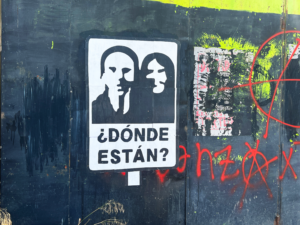

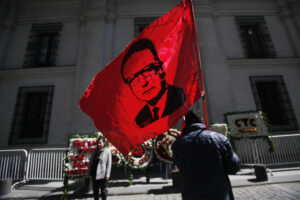
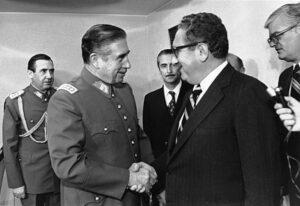
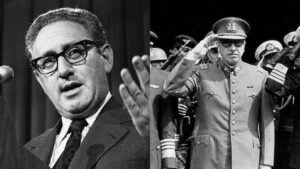
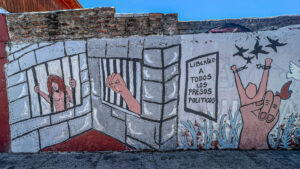
You need to be a supporter to comment.
There are currently no responses to this article.
Be the first to respond.